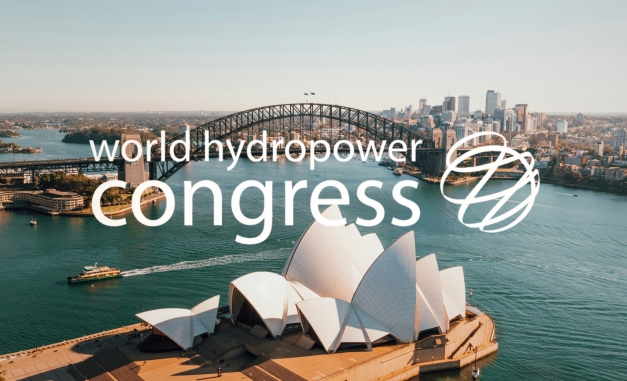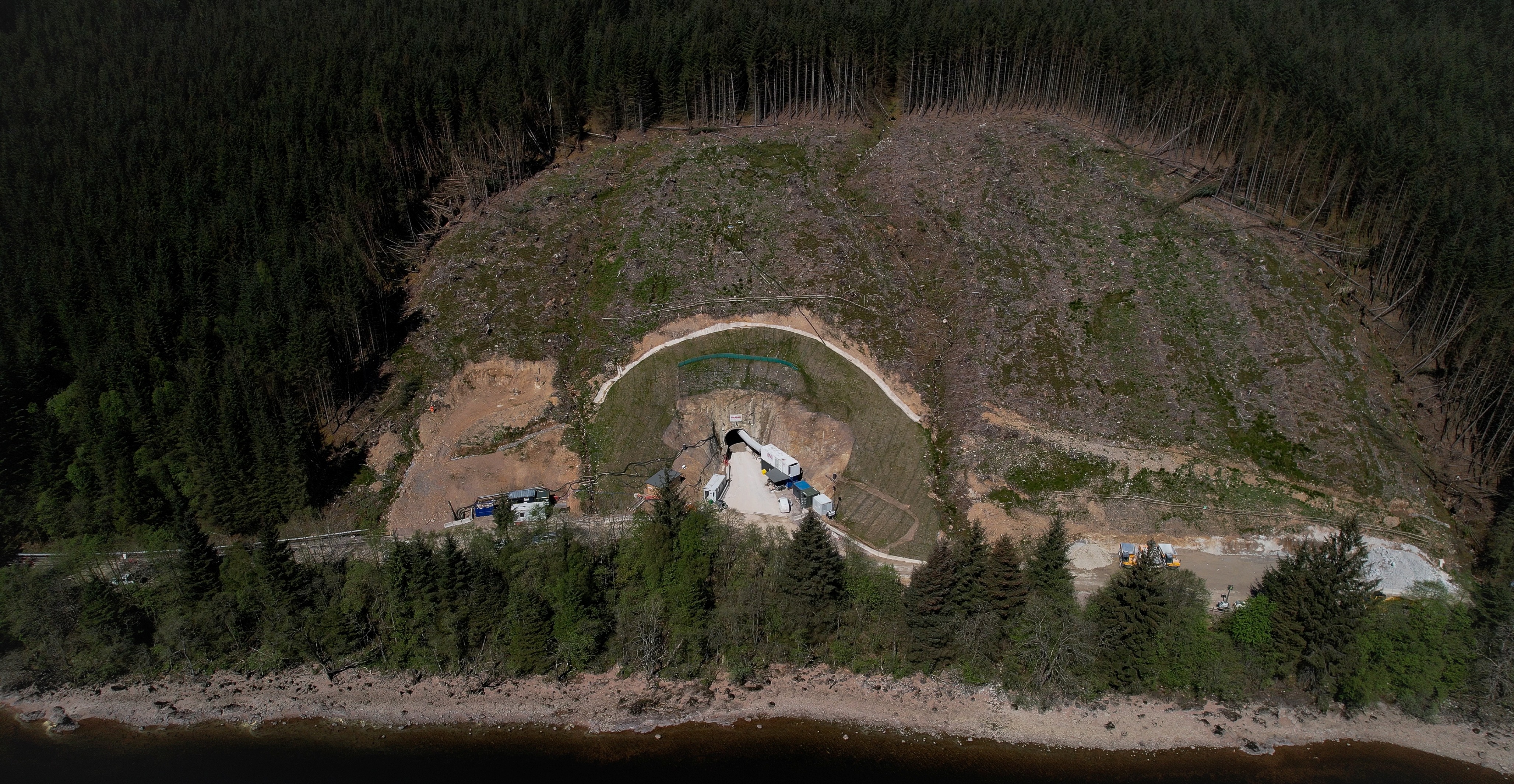Gabon's Dibwangui project achieves global good practice in ESG assessment
The Dibwangui hydropower project in Gabon has been rated as an example of international good practice in sustainability design and planning, following an independent assessment.
Plans for the 15 megawatt plant in the central African country achieved globally recognised good practice across 11 environmental, social and governance (ESG) performance criteria examined in the study.

Figure: Aerial plan of proposed Dibwangui project from the assessment report
When completed, the hydroelectric plant in Ngounié province will power the country’s south-west region and support local rural communities currently without electricity. The Dibwangui project is being developed by Louetsi Hydro, a special purpose vehicle of Eranove Group and the Gabonese Strategic Investment Fund (FGIS).
The assessment was undertaken using the Hydropower Sustainability ESG Gap Analysis Tool, an innovative new tool which identifies and addresses any gaps against good practice. Assessment criteria include environmental and social management, community impacts, biodiversity, climate change, labour conditions, and communications and consultation.
This is the first time a project in Africa has published an assessment using the tool, which was developed by the Hydropower Sustainability Assessment Council, a group of civil society, governments, industry and financial institutions, together with the International Hydropower Association (IHA).

Alain Kilajian, Sustainability Specialist at IHA, said: “Hydropower projects help countries to increase access to electricity while delivering on social and economic development priorities. With this new assessment tool, it is now possible to determine whether these projects are being planned and built responsibly and sustainably in accordance with international standards. Eranove Group deserve credit for commissioning this independent, rigorous and transparent report.”
Responding to the assessment, Eranove Group CEO Marc Albérola said: “The results of this evaluation confirm Eranove Group's commitment to the sustainable operation of its hydropower facilities. Hydropower is an energy source which meets the dual imperative of being competitive and low carbon. This study confirms the Dibwangui project’s compliance with good environmental and social practices that we have delivered together with the Gabonese Strategic Investment Fund. I thank FGIS for its trust.”
Gabonese Minister of Water, Forests, the Sea and the Environment, Professor Lee White, stated: "We are proud that a Gabonese hydroelectric project is the first in French-speaking Africa to be audited using the ESG tool. I salute the commitment of the FGIS-Eranove Group, which is taking a further step towards sustainable hydroelectricity in Gabon and Africa.”
Alain Claude Bilie-By-Nzé, Gabon's Minister of State for Energy and Water Resources, added: “As part of the Paris Climate Agreement, Gabon has committed to reducing its greenhouse gas emissions by at least 50 per cent by 2025 by initiating an energy transition focused mainly on hydropower. The Dibwangui power plant is one of these projects. It will make it possible to sustainably meet the energy needs of isolated communities while contributing to the development of the economic fabric of Ngounié and the well-being of the local population.”

In the study, independent assessor Margaret Trias determined the project team had carefully engaged nearby communities during planning and development and the consultation process was open and transparent. “What the project has done really well is to establish an excellent relationship with nearby communities throughout its pre-feasibility and feasibility stages,” she said.
“The project includes restoring an existing electrical distribution line that has not been in service for many years and which was high on the communities’ list of priorities. As they have no access to electricity, this was something the project had not initially envisaged but that eventually became one of its benefits. When speaking to the community members you had a sense of their pride in showing you around and explaining what the project would look like,” she added.
The assessment between September and October 2019 involved reviewing project plans and interviewing the developer, local community members, national and local government authorities and The Nature Conservancy NGO.
The report is publicly available (in French) on the HydroSustainability.org website.
Learn more about sustainability in hydropower: www.hydrosustainability.org
To enquire about the assessment process, please contact training@hs-alliance.org
Hydropower Sustainability Tools
The Hydropower Sustainability Tools were developed by the Hydropower Sustainability Assessment Council, a governing council representing industry, government, financial institutions and social and environmental NGOs. The tools are published by IHA as the council’s secretariat.

The tools comprise:
- Guidelines on Good International Industry Practice as well as two assessment tools:
- the Assessment Protocol to measure performance above and below defined good practice
- the ESG Gap Analysis Tool for checking for gaps against good practice and delivering a gap management plan.









